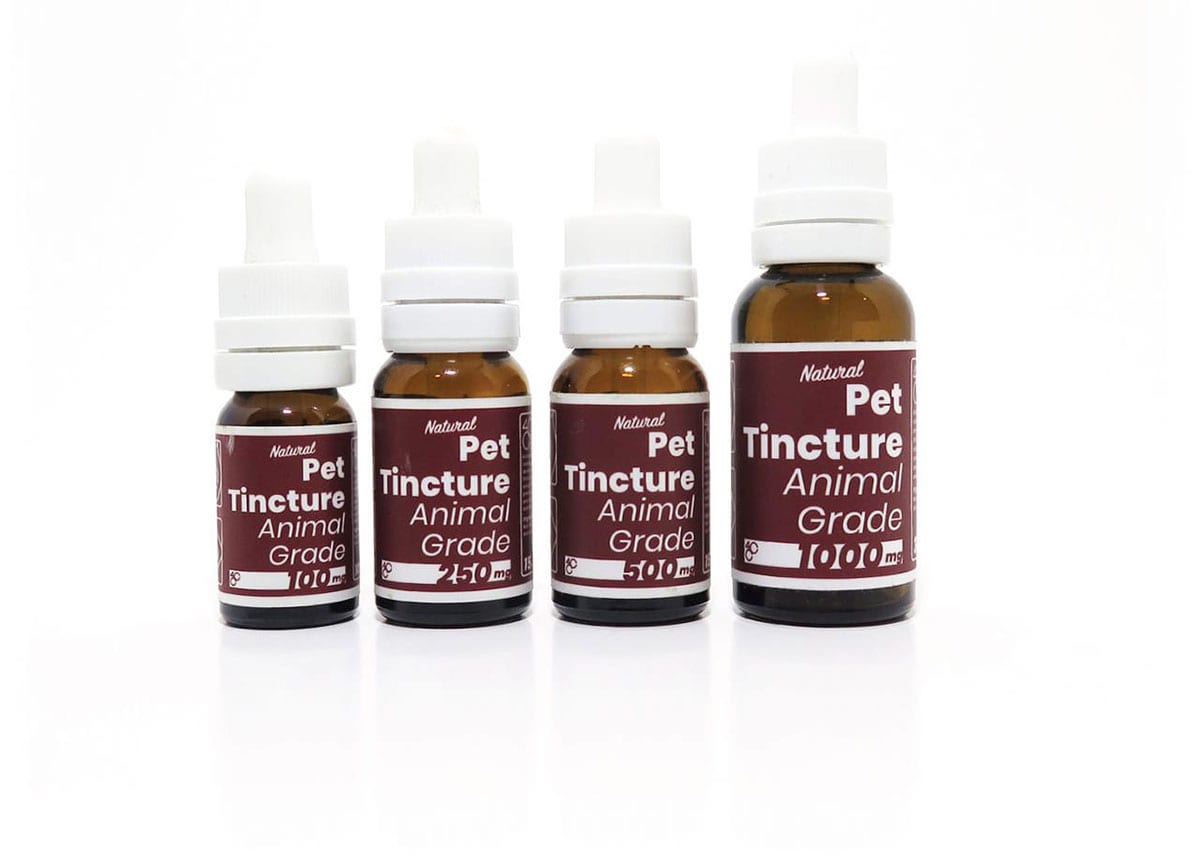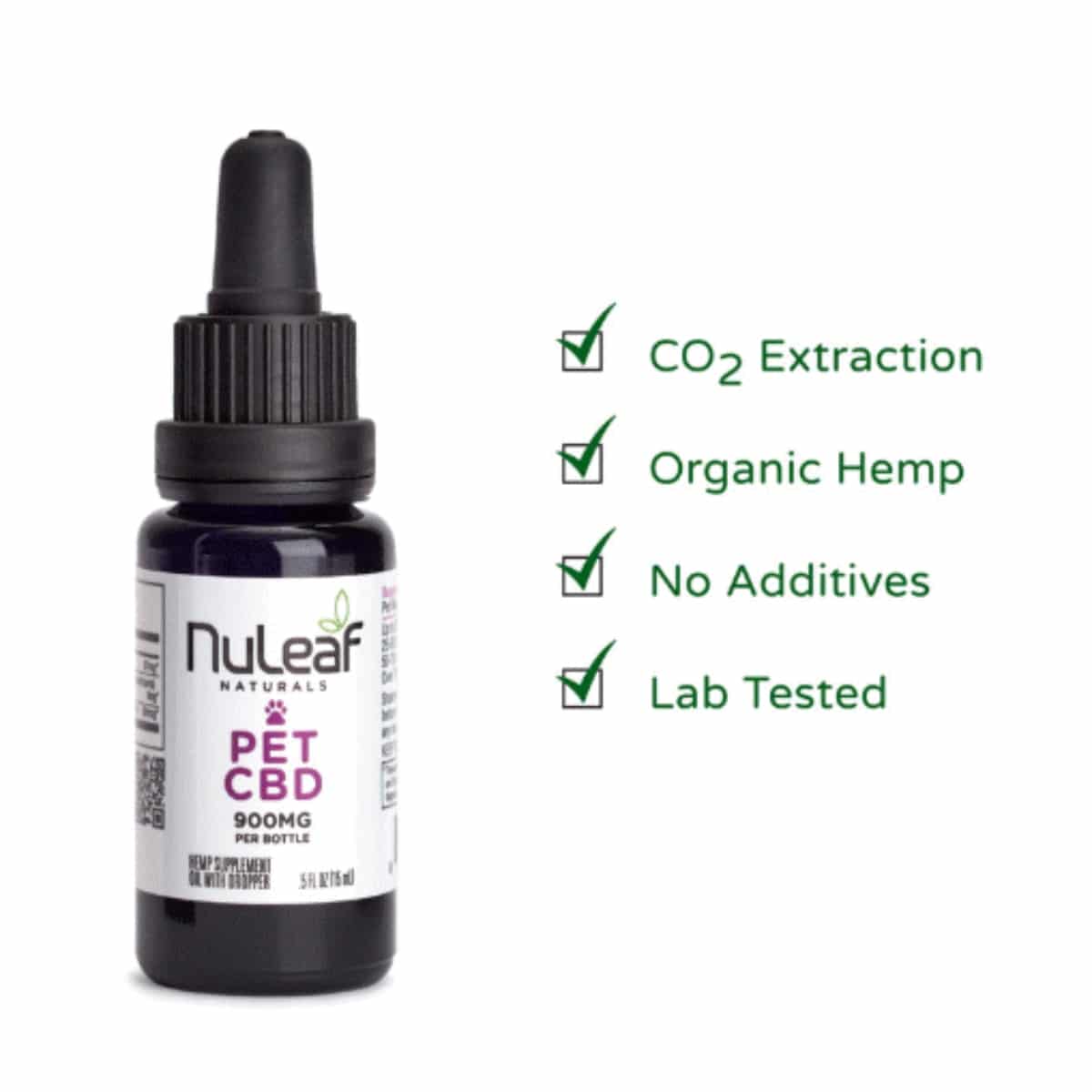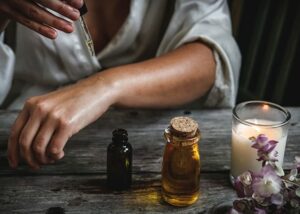CBD Products for Horses
Do you want to try CBD (cannabidiol) for your horses? Find out how you can choose the best CBD products for equine care.
Best CBD for Horses in 2024
- HolistaPet CBD Oil for Horses Most Potent
- CBDistillery CBD Pet Tincture Best Value For Full Spectrum CBD
- 4 Corners Cannabis Pet Tincture Best High Potency
- NuLeaf Naturals Full Spectrum Hemp CBD Pet Oil Best Organic
- Honest Paws Wellness CBD Oil for Horses Best Horse Health Support
Compare the Best CBD for Horses in 2022
1. HolistaPet CBD Oil for Horses
cbdc overall score
5.0
CBDC Evaluation Table/Score
| Pros | Cons |
|---|---|
|
High potency |
No other flavor |
|
100% natural |
|
|
More affordable compared to other brands |
|
|
Can be given to other Livestock animals |
Overview
HolistaPet CBD Oil for Horses is formulated with pure CO2 extracted Full Spectrum CBD Oil and Hemp Seed Oil. This creates a powerful concentration of CBD that you can easily give to your horse.
2. CBDistillery CBD Pet Tincture
cbdc overall score
4.2
CBDC Evaluation Table/Score
| Pros | Cons |
|---|---|
|
60-Day Satisfaction Guarantee |
Dropper is a bit shaky |
|
Hemp seed oil is safe for pets and aids in easy digestion |
|
|
Oil extracted from aerial plant parts of US grown industrial hemp |
|
|
Sourced from non-GMO industrial hemp grown in the USA through natural farming practices |
Overview
CBDistillery’s Full Spectrum CBD Oil Pet Tinctures were made with your pets in mind. Formulated with cold-pressed hemp seed oil, your pets can now enjoy all of the same benefits of CBD that you do.
3. 4 Corners Cannabis Pet Tincture
cbdc overall score
5.0
CBDC Evaluation Table/Score
| Pros | Cons |
|---|---|
|
Has a wide variety of CBD strengths |
A bit expensive |
|
Free shipping on $100 and up |
Incomplete lab test results |
Overview
4 Corners Cannabis Pet Tinctures are generous on their options since there are different sizes and strengths available for you exact needs. The flavor peanut butter is available perfect for pets who are picky when it comes to eating.
4. NuLeaf Naturals Full Spectrum Hemp CBD Pet Oil
cbdc overall score
5.0
CBDC Evaluation Table/Score
| Pros | Cons |
|---|---|
|
Pure CBD hemp |
No other flavors |
|
All natural |
Overview
CBD for dogs, cats and other four-legged friends! Our product is concentrated to approximately 60mg cannabinoids per milliliter of oil. While this product is designed for pets, it’s great for humans, too.
5. Honest Paws Wellness CBD Oil for Horses
cbdc overall score
4.6
CBDC Evaluation Table/Score
| Pros | Cons |
|---|---|
|
100% natural |
No other flavor |
|
Chemical-free |
Low potency |
|
THC-free |
Overview
Give your horses the golden years they deserve by boosting their immune system and cognitive health to prevent loose lips, a rougher coat, less mentally alert, droopy fetlocks and allergies with daily dose of Honest Paws CBD Oil.
How CBD Helps Horses
The ancient Greeks used cannabis plants thousands of years ago to treat horses for inflammation, colic, and battle wounds(1).
Nowadays, there is a growing curiosity in using CBD (cannabidiol) and other cannabis-derived products for horses with arthritis and negative stereotypical behaviors(2).
CBD, a cannabinoid derived from hemp plants(3), interacts with the endocannabinoid system (ECS).
The ECS, which is pervasive in mammals like horses, plays a massive role in how cannabinoids influence various biological processes. Furthermore, it is responsible for keeping the body in homeostasis(4).
Homeostasis is a process by which biological systems maintain stability while adjusting to constantly changing external environments(5).
A study from the journal Animals determined that endogenous and exogenous ECS-related molecules can influence the endocannabinoid system(6).
Endogenous cannabinoids (called endocannabinoids) are molecules naturally made by the body.
Meanwhile, exogenous cannabinoids are plant-based (phytocannabinoids) ligands that interact with the cannabinoid receptors CB1 and CB2.
CB1 receptors mainly reside in the central nervous system, while CB2 receptors are primarily spread throughout the peripheral nervous system.
CB receptors are involved in numerous biological processes, including pain(7).
Osteoarthritis (OA) is a progressive disease that compromises the horses’ mobility and joint health. The inflammation associated with OA causes pain and swelling of the affected joint(8).
Equine osteoarthritis is divided into two groups: primary and secondary.
Primary OA arises from the wear and tear of everyday activities, while secondary OA occurs when an injury to a joint becomes severe that the cartilage starts to break down(9).
Cannabidiol has combined immunosuppressive and anti-inflammatory properties(10), making it a promising remedy for equine osteoarthritis.
However, there is less research regarding CBD’s purported therapeutic benefits on horses. Thus, more studies are required to determine how this nonpsychoactive compound of Cannabis sativa can contribute to equine care.
Benefits of Using CBD for Horses
Numerous claims exist regarding the purported therapeutic benefits of CBD in humans and animals.
Although the supportive evidence is promising, the lack of regulation in the use of cannabidiol means that CBD product consistency, efficacy, and even safety may not be guaranteed(11).
For this reason, Murray State University conducted a study to evaluate cannabidiol’s safety and use effects on the movement and reactivity in horses(12). Project 1 observed the bioavailability of a single 50mg dose of an oil and CBD pellet.
Bioavailability is the extent to which a substance becomes entirely available to one’s system(13). In this case, the intended biological destination is a horse’s body.
One of the two Quarter Horse geldings (castrated male horses) received the oil, while the second Quarter Horse received the pellets(14).
Researchers noted that blood samples for serum cannabinoid concentration occurred after one to two hours post-administration. Both products were below LLOQ (lower limit of quantification).
Meanwhile, Project 2 observed the pharmacokinetics of a single feeding of CBD pellets at 50mg, 100mg, and 250mg in 18 stock-type geldings.
The researchers collected blood at 0, 0.5, 1, 2, 4, and 12 hours post-treatment for a CBD serum concentration.
Afterward, they monitored the safety of their subjects via serum chemistry and CBC (complete blood count).
Although serum chemistry and CBC results were within reference ranges, the researchers observed treatment differences for creatinine.
The study stated that a single dose of up to 250mg CBD dose may be relatively safe for horses, providing fundamental knowledge on equine dosing(15).
The researchers indicated that the current small animal dose of 25-50mg of CBD per day may be inadequate for horses(16).
Although the current dose worked, it may take several weeks for it to modify adverse behaviors. On the other hand, higher doses may give more immediate results to alleviate painful conditions, such as equine osteoarthritis.
Another study from Equine Veterinary Education examined how cannabidiol may help a horse with mechanical allodynia (other pain)(17).
A four-year-old quarter horse mare was reported to have a marked sensitivity near its shoulder region for five weeks. It was first administered with regular pain treatment. However, it did not show any signs of improvement.
The dose of cannabidiol used in the mare was based loosely on human dosing recommendations.
The dosage used in the horse was approximately 0.5mg per kilogram twice daily and appeared to be effective even when the dose was slowly reduced to 0.33mg per kilogram once daily.
While cannabidiol may be effective in the horse for behavior modulation and pain reduction, significant research is necessary to establish the dosage, safety, bioavailability, and drug interaction in equine cases.
CBD Dosage For Horses
Based on small animal dosages, the current CBD supplement dose recommended for horses is between 25 to 50mg per day. Furthermore, quantities may not be applicable on a bodyweight basis(18).
For lower dosage supplementation, several weeks may be required before effects are seen on horses’ behavior.
Meanwhile, higher doses of CBD may have a more immediate impact on painful conditions, such as arthritis(19).
How Long Does CBD Take to Help Horses?
Most of the CBD studies that revolve around equine care are still ongoing. Hence, it is not clear how long it takes for cannabidiol to help horses.
However, the Murray State University study indicated that the oil took slightly longer to absorb. The researchers observed that the oil required less product to achieve a final maximum concentration than the pellet version(20).
The result implies that the time it takes for cannabidiol to help horses depends on the method of administration.
How Long Will CBD Help Horses?
A study demonstrated that CBD pellets and CBD oil products appear to be bioavailable to horses.
In addition, data from Project 2 of the Murray State University study suggested a time of CBD concentration maximum in the equine species to be 2 hours(21).
How to Administer CBD Oil to Your Horses
There are various CBD products available for horses on the market, including:
- CBD oil or tincture
- CBD pastes
- CBD sprays
- Topical CBD salves and balms
- CBD Pellets
If you opt to use CBD oil, you can dispense the CBD content using a calibrated dropper and add a few drops to your horse’s food. You may also want to try the sublingual route for faster absorption.
The sublingual delivery method relies on the mucous membrane under the tongue and cheeks to absorb cannabidiol(22).
On the other hand, CBD pellets are generally administered orally and mixed with feed.
Tips for Using CBD Products on Horses
Finding the best CBD product for your horses may be challenging when numerous CBD companies promise almost the same thing.
Most CBD brands promise the best CBD products to their customers, even offering a money-back guarantee if their products do not deliver as advertised.
Meanwhile, other CBD companies blatantly promote cannabidiol’s purported health benefits. Some even claim that their CBD products can help with different health issues, such as high blood pressure.
Still, other brands may share anecdotal evidence on how CBD may be used for pain relief.
To avoid confusion, below are tips to help you choose the appropriate hemp products for equine care.
- Before purchasing CBD products, read about the different state laws to avoid legal repercussions.
Not all states approve the use of medical marijuana. For instance, in South Dakota, possession of any CBD products is considered a violation of state law(23).
- Make sure a third-party lab tested the CBD brand’s products. These reports must be found on the manufacturer’s website and CoAs (certificates of analysis).
Testing all CBD products is necessary to ensure that they do not contain pesticides, heavy metals, residual solvents, and other harmful contaminants.
- Compare the CoA with the CBD brand’s claims and pay attention to any disclaimers.
The FDA (Food and Drug Administration) has not approved CBD as a medical treatment(24).
Hence, the claims that CBD brands make must be backed with scientific evidence and accurate lab results to ensure that their product is safe to use for your horse’s health and overall wellness.
- Visit the official website of USEF (United States Equestrian Federation) and check if they have rules and regulations regarding the use of industrial hemp products for horses.
Is CBD Oil Safe for Horses?
According to the Anti-Cruelty Society, cannabidiol found in CBD pet supplements is sourced from hemp, a variety of cannabis that has low concentrations of THC(25).
THC is a psychoactive chemical compound of marijuana. Unlike THC, cannabidiol or CBD does not cause a euphoric high. Thus, it is believed to be safe on animals(26).
Still, a consultation with a veterinarian is advised before using CBD on your horse.
Note that the current federal law may limit how your veterinarian discusses the use of CBD products with you. In addition, there may be risks for them for having CBD products in their possession(27).
Nevertheless, you should be comfortable initiating a discussion with them when contemplating giving CBD to your horse.
Risks and Side Effects of Using Cannabidiol for Horses
The researchers from Murray State University hypothesized that CBD appears to lack the degree of adverse side effects in a short-term therapeutic study(28).
However, they suggested that further research is needed to examine CBD’s safety over an extended treatment period to determine its potential as an alternative therapeutic approach for a horse condition.
How to Buy a Quality CBD Oil Product for Horses
Know the Different Hemp Extracts
When choosing the best CBD products for your horses, you can opt for full-spectrum CBD oil, broad-spectrum, or CBD isolates.
A product is called full-spectrum CBD if all extracts of the cannabis plant, including terpenes, essential oils, flavonoids, and other cannabinoids, are utilized.
In addition, full-spectrum CBD oil contains THC (tetrahydrocannabinol) that is less than 0.3%. THC is the only psychotropic cannabinoid found in Cannabis sativa(29).
Meanwhile, broad-spectrum CBD is almost similar to full-spectrum. However, it is nearly THC-free.
CBD isolates are cannabidiol in their purest form.
Go for Organic Hemp
If possible, choose CBD products that are non-GMO, gluten-free, or contain natural ingredients.
Confirm the Extraction Method Used
Choose the highest-quality CBD products that utilize the CO2 extraction method. This process uses compressed carbon dioxide as the extraction solvent instead of chemicals. Thus, it is the safest and purest CBD extraction method(30).
Check the Inactive Ingredients
Ensure to read the ingredient list usually found at the back of the product label. Examine whether the product contains a particular ingredient to which your horse may be allergic.
Most CBD oils have a carrier oil, such as hempseed oil and coconut oil.
Note that hemp oil is different from hempseed oil. Although hempseed oil does not contain cannabinoids, it is rich in nutrients and fatty acids(31).
Legality of CBD
The Federation Equestre Internationale (FEI), the international governing body for equine sports, has banned the use of natural and synthetic cannabinoid substances in horses(32).
Hence, horse owners are not allowed to administer CBD products to their competing horses.
If you are from Nevada, you can consult a licensed veterinarian regarding CBD. The Silver state allows licensed veterinarians to prescribe hemp and CBD products to their patients, provided that the THC level is not more than 0.3%(33). Meanwhile, adult Coloradans are allowed to grow marijuana plants in their homes for personal use(34). However, it is not clear whether Colorado permits the use of CBD in horses.
Product Frequently
Asked Questions
-
How can CBD help horses?
There is limited research on how horses can benefit from CBD. Nonetheless, CBD is known for its anti-inflammatory properties that may help with equine osteoarthritis.
Osteoarthritis is a progressive illness that compromises the mobility and joint health of horses. This condition results in pain and swelling of the affected joint(35).
Research from Proceedings of the National Academy of Sciences of the United States of America stated that CBD may have a potent anti-arthritic effect in murine collagen-induced arthritis due to its combined anti-inflammatory and immunosuppressive actions(36).
The result may be promising. However, the study is inconclusive. Hence, more research is required to determine how CBD can help horses.
-
What evidence or research exists to say that CBD helps horses?
A 2019 case report from the Equine Veterinary Education examined how cannabidiol may help a horse with mechanical allodynia(37).
Mechanical allodynia is characterized by a painful sensation resulting from harmless stimuli like a light touch.
For five weeks, the mare was reported to have a marked sensitivity near its shoulder region. It was first administered with a regular pain relief treatment. However, it did not show any signs of improvement.
The mare was eventually given CBD orally. The dosage was 250mg, given twice daily. After two days, the researchers noticed some improvements in the mare’s condition.
Although the results are promising, more longitudinal studies are required to establish CBD’s therapeutic effect on horses.
Meanwhile, researchers from Tarleton State University aim to quantify how cannabidiol affects stress, inflammation, and stereotypical negative behaviors in horses(38).
-
Will CBD interact with any current medication my horse may be taking?
Yes. Any form of medical treatment may carry a risk of reaction. Commonly reported side effects of CBD in animals include lethargy, vomiting, diarrhea, and inappetence(39).
It is important to note that cannabidiol, specifically CBD use in animals, is not legal in all states.
While veterinarians are not free to discuss the subject of CBD therapy with you, you can initiate a discussion with them.
-
Are there other treatments my horse can take alongside CBD?
Glucosamine has been a popular ingredient in joint pain supplements due to its purported anti-arthritic properties(40).
Most horse owners have tried glucosamine on their horses for joint pain. However, like CBD, the studies about glucosamine’s therapeutic benefits are inconclusive.
Thus, horse owners are advised to be cautious when deciding whether to use oral joint supplementation for their horses.
-
What is the dosage of CBD for horses?
A pilot study conducted by the Murray State University suggested that CBD dosage for horses is between 25 to 50mg per day(41).
However, this dosage is based on small animal dosages and may not be appropriate on a bodyweight basis.
-
How long does CBD take to help horses?
Most of the studies on cannabidiol that focused on equine care are still ongoing. Hence, it is unclear how long it takes for CBD to help horses.
-
What is the easiest way to give horses CBD products?
You may try CBD pellets. They are usually mixed in horse feeds.
-
Is CBD oil safe for my horse?
Yes. Cannabidiol has no known toxicity level(42). If you administer it to your horse as directed, it is unlikely to cause detrimental side effects.
CBD is nonpsychoactive and appears safe to be used on animals(43).
-
Where can I get CBD oil for horses, and what do I need to know before buying?
CBD products, such as CBD oils, are widely available in the U.S. and often marketed for therapeutic purposes. Nevertheless, efficacy and safety claims must be substantiated through the federal government’s approval to sell such products legally(44).
If you want to try CBD oil for your horse, you should be aware of the various research in the field. CBD products should not have any traces of THC, which is toxic for animals(45).
In addition, it is crucial that the CBD vendor you are eyeing enlist the service of a reputable third-party laboratory to test all of their products.
The lab report and the CoA must be readily accessible on the vendor’s website. These documents are vital to determine the concentration and potency of their products.
-
Is CBD legal for horses?
Different states have different rules and regulations regarding cannabis use in animals.
In Nevada, for instance, licensed veterinarians can prescribe CBD products to their patients, provided that the THC content is not more than 0.3%(46).
In Rhode Island, a licensed veterinarian can provide a written certification for medical marijuana provided that the animal is certified by a veterinary practitioner as having a debilitating medical condition(47).
The written consent must include the following:
- The veterinary practitioner’s professional opinion
- The potential benefits of medical marijuana
- The use of medical cannabis will likely outweigh the health risks
-
What are the side effects of CBD for horses?
A study from Murray State University noted that CBD appears to lack the degree of adverse side effects in a short-term therapeutic study(48).
Commonly reported side effects of CBD in animals include vomiting, lack of appetite, diarrhea, and lethargy(49).
-
What are the benefits of CBD oil for horses?
There is a lack of research regarding the benefits of CBD oil for horses. However, CBD has anti-inflammatory properties and immunosuppressive actions(50). Thus, CBD may alleviate the pain experienced by horses.
In addition, CBD also has a calming and relaxing effect(51). Thus, it may help calm an anxious horse.
- CBD: A Patient’s Guide to Medicinal Cannabis, page. 303. https://drive.google.com/file/d/1MILU_6ZjYkII-XMUPHLFPiPQbrz__5Sh/view
- Hemp For Horses? Tarleton Researcher Investigating Benefits https://today.tamu.edu/2020/02/12/hemp-for-horses-tarleton-researcher-investigating-benefits/
- Cannabidiol (CBD)-what we know and what we don’t https://www.health.harvard.edu/blog/cannabidiol-cbd-what-we-know-and-what-we-dont-2018082414476
- The Endocannabinoid System of Animals https://www.ncbi.nlm.nih.gov/pmc/articles/PMC6770351/
- Homeostasis: The Underappreciated and Far Too Often Ignored Central Organizing Principle of Physiology https://www.frontiersin.org/articles/10.3389/fphys.2020.00200/full
- The Endocannabinoid System of Animals https://www.ncbi.nlm.nih.gov/pmc/articles/PMC6770351/#B5-animals-09-00686
- Cannabinoid receptors as therapeutic targets https://pubmed.ncbi.nlm.nih.gov/16402900/
- What To Know About Equine Osteoarthritis https://vetmed.tamu.edu/news/pet-talk/what-to-know-about-equine-osteoarthritis/
- Ibid.
- The nonpsychoactive cannabis constituent cannabidiol is an oral anti-arthritic therapeutic in murine collagen-induced arthritis https://pubmed.ncbi.nlm.nih.gov/10920191/
- Cannabidiol in the horse: pharmacokinetics and effects of a pelleted supplement on reactivity and movement https://digitalcommons.murraystate.edu/cgi/viewcontent.cgi?article=1229&context=etd
- Ibid.
- Drug Bioavailability https://www.ncbi.nlm.nih.gov/books/NBK557852/
- Cannabidiol in the horse: pharmacokinetics and effects of a pelleted supplement on reactivity and movement https://digitalcommons.murraystate.edu/cgi/viewcontent.cgi?article=1229&context=etd
- Ibid, page 6.
- Evaluation of CBD Supplementation in the Horse https://digitalcommons.murraystate.edu/cgi/viewcontent.cgi?article=3402&context=postersatthecapitol
- Treatment using cannabidiol in a horse with mechanical allodynia https://static1.squarespace.com/static/5dab51c52920995e635d4295/t/5e5cec8b17c29a501a689d54/1583148171712/Ellis2020EquineVetEducation.pdf
- Evaluation of CBD Supplementation in the Horse https://digitalcommons.murraystate.edu/cgi/viewcontent.cgi?article=3402&context=postersatthecapitol
- Ibid.
- Cannabidiol in the horse: pharmacokinetics and effects of a pelleted supplement on reactivity and movement, page. 72. https://digitalcommons.murraystate.edu/cgi/viewcontent.cgi?article=1229&context=etd
- Ibid, page 63.
- Healing with CBD https://drive.google.com/file/d/1AGlxnhS2SoFeOXEuysv75bd_C9pEnwsU/view
- Attorney General Ravnsborg Clarifies Questions Regarding Industrial Hemp And Cbd (Cannabidiol) Oil https://atg.sd.gov/OurOffice/Media/pressreleasesdetail.aspx?id=2167
- What You Need to Know (And What We’re Working to Find Out) About Products Containing Cannabis or Cannabis-derived Compounds, Including CBD https://www.fda.gov/consumers/consumer-updates/what-you-need-know-and-what-were-working-find-out-about-products-containing-cannabis-or-cannabis
- CBD for Animals https://anticruelty.org/pet-library/cbd-animals
- Ibid.
- Cannabis, Cannabidiol Oils, and Tetrahydrocannabinol—What Do Veterinarians Need to Know? https://www.mdpi.com/2076-2615/11/3/892/htm#B75-animals-11-00892
- Cannabidiol in the horse: pharmacokinetics and effects of a pelleted supplement on reactivity and movement https://digitalcommons.murraystate.edu/cgi/viewcontent.cgi?article=1229&context=etd
- The Endocannabinoid System of Animals https://www.ncbi.nlm.nih.gov/pmc/articles/PMC6770351/
- Understanding dabs: contamination concerns of cannabis concentrates and cannabinoid transfer during the act of dabbing https://www.jstage.jst.go.jp/article/jts/40/6/40_797/_pdf/-char/en
- Hemp Seed Oil Properties https://extension.okstate.edu/fact-sheets/hemp-seed-oil-properties.html
- 2021 Equine Prohibited Substances List https://inside.fei.org/sites/default/files/2021%20Prohibited%20Substances%20List.pdf
- Nevada veterinarians can treat patients with certain cannabis products https://www.avma.org/javma-news/2021-10-01/nevada-veterinarians-can-treat-patients-certain-cannabis-products
- Home grow laws https://cannabis.colorado.gov/legal-marijuana-use/home-grow-laws
- What To Know About Equine Osteoarthritis https://vetmed.tamu.edu/news/pet-talk/what-to-know-about-equine-osteoarthritis/
- The nonpsychoactive cannabis constituent cannabidiol is an oral anti-arthritic therapeutic in murine collagen-induced arthritis https://pubmed.ncbi.nlm.nih.gov/10920191/
- Treatment using cannabidiol in a horse with mechanical allodynia https://static1.squarespace.com/static/5dab51c52920995e635d4295/t/5e5cec8b17c29a501a689d54/1583148171712/Ellis2020EquineVetEducation.pdf
- Hemp For Horses? Tarleton Researcher Investigating Benefits https://today.tamu.edu/2020/02/12/hemp-for-horses-tarleton-researcher-investigating-benefits/
- FAQs About CBD Use in Pets https://www.aspcapro.org/resource/faqs-about-cbd-use-pets
- Equine Joint Supplementation: Does It Really Work? http://extension.msstate.edu/publications/equine-joint-supplementation-does-it-really-work
- Evaluation of CBD Supplementation in the Horse https://digitalcommons.murraystate.edu/cgi/viewcontent.cgi?article=3402&context=postersatthecapitol
- CBD for Animals https://anticruelty.org/pet-library/cbd-animals
- Ibid.
- Cannabis, Cannabidiol Oils and Tetrahydrocannabinol—What Do Veterinarians Need to Know? https://www.mdpi.com/2076-2615/11/3/892/htm#B75-animals-11-00892
- CBD for Animals https://anticruelty.org/pet-library/cbd-animals
- Nevada veterinarians can treat patients with certain cannabis products https://www.avma.org/javma-news/2021-10-01/nevada-veterinarians-can-treat-patients-certain-cannabis-products
- State Legislative Update https://www.avma.org/sites/default/files/2021-03/SLU-Feb2021.pdf
- Cannabidiol in the horse: pharmacokinetics and effects of a pelleted supplement on reactivity and movement https://digitalcommons.murraystate.edu/cgi/viewcontent.cgi?article=1229&context=etd
- FAQs About CBD Use in Pets https://www.aspcapro.org/resource/faqs-about-cbd-use-pets
- The nonpsychoactive cannabis constituent cannabidiol is an oral anti-arthritic therapeutic in murine collagen-induced arthritis https://pubmed.ncbi.nlm.nih.gov/10920191/
- CBD for Animals https://anticruelty.org/pet-library/cbd-animals











